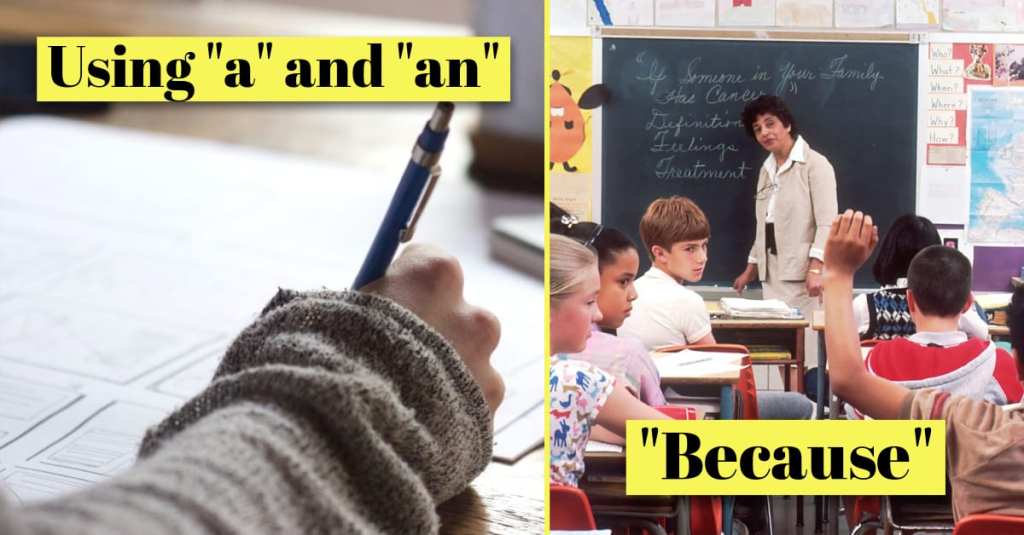Many of us who have been through school understand that when it comes to grammar, there are rules. At least, we think we do.
What if you found out that many of those “rules” aren’t exactly true?
That’s exactly what happened when someone put together this list of 10 grammar myths that our English teachers lied to us about. At least, they definitely exaggerated the truth.
1. Never start a sentence with “and”
The Chicago Manual of Style pros say there’s no real reason to not begin a sentence with “if,” “and,” or “but.”
2. Never start a sentence with “because”
In that same vein, there’s no actual rule against beginning a sentence with “because.”
Because why would you ever put a limit on expression like that?
3. When to use “a” and “an”
This rule is a given, right? Use “a” on words that start with a consonant and “an” on words that start with a vowel.
Except… there’s an important distinction.
We also need to consider what the word sounds like. If the sound appears to be a consonant, even though it starts with a vowel, we have an “a”.
Example: “a” university. University sounds like it’s starting with the letter “y” so it gets an “a” in front of it.
What’s an example of the opposite? “an” herb garden. Herb sounds like it starts with “e” so it gets “an” in front of it.
4. Sentences can’t end with prepositions
Many of us were taught that sentences can’t end with words like “on,” “from,” “for,” “by,” “above,” and “over”.
However, there are quite a few instances in which it’s perfectly okay to do so.

Photo by National Cancer Institute on Unsplash
5. Never refer to a person as “that”
The example given here is that Merriam-Webster’s Dictionary of English Usage notes “kids that are late for school will miss math class” is a perfectly okay sentence.
6. Don’t refer to animals with “who”
Similarly, you can use “who,” “him,” and “her” to refer to an animal that has a name.
7. “Such as” begins a list
While you definitely want to use the phrase “such as,” you don’t have to.
An example: “I love movies with a lot of romance such as Bed of Roses, Casablanca, and An Affair to Remember” and “I love romantic movies like Bed of Roses, Casablanca, and An Affair to Remember” are both grammatically correct sentences.
8. Sentences can’t end with conjunctions
If you had this rule drilled into you, fret no longer.

Photo by javier trueba on Unsplash
9. Don’t split infinitives
This is another rule that everyone assumes is correct, but that actually doesn’t really matter.
The example given is the famous Star Trek line: “To boldly go where no one has ever gone before.”
To go is the infinitive, and “boldly” splits it up… and it’s totally okay.
10. Passive voice is a no-no
Generally, active voice is the way to go… but the passive voice is rarely wrong, it’s just not preferred.

Photo by Green Chameleon on Unsplash
Did any of these rules surprise you? Do you have one you’d like to share with us?
Let us know in the comments!







